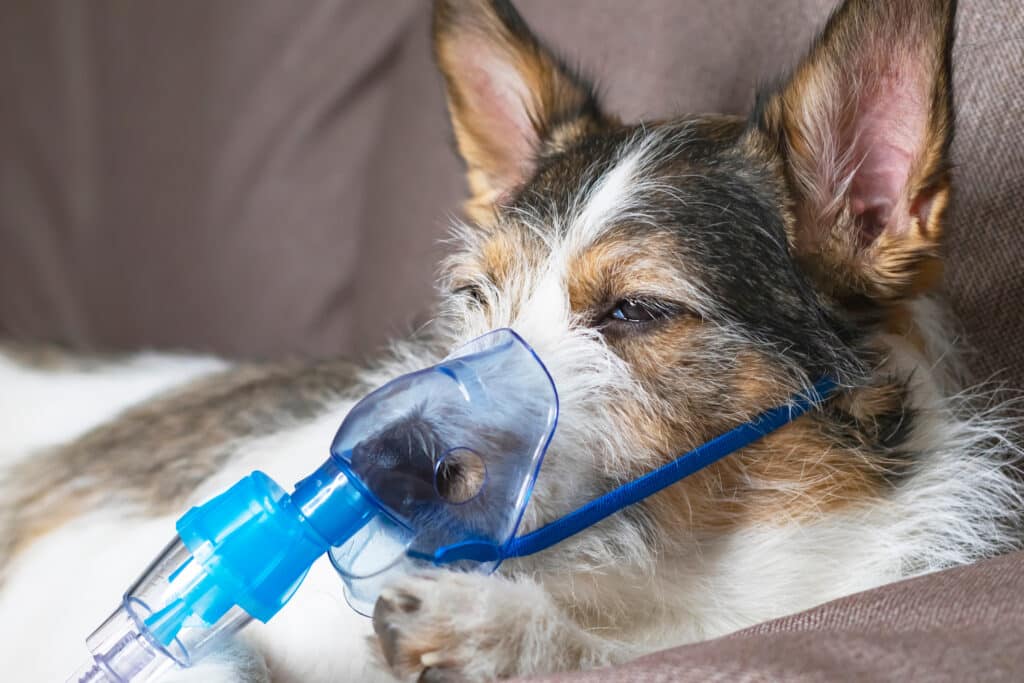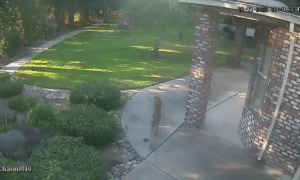“This post contains affiliate links, and I will be compensated if you make a purchase after clicking on my links.”
An unusual and potentially fatal respiratory illness is sickening dogs and has left others dead in several states across the country.
According to TODAY, the illness starts out as a simple cough, but lasts for several weeks and may not respond to typical treatment like antibiotics, leaving the dog struggling to breathe and with severe pneumonia.
In addition to coughing, the Oregon Department of Agriculture reported other symptoms that include sneezing, discharge from the eyes or nose, trouble breathing, and fatigue.
Dog owners who observe any of the above mentioned symptoms are encouraged to immediately bring their dog to the vet.
Talking to TODAY, Dr. Lindsey Ganzer, veterinarian and CEO at North Springs Veterinary Referral Center in Colorado Springs, Colorado, said, “It seems to happen very, very quickly — to go from this cough that’s just won’t go away … and then all of a sudden they develop this pneumonia.”
Dr. Ganzer reveals that her hospital has seen over 30 dogs with the mysterious illness since the middle of October. She also reveals that most of them had recently spent time at a boarding facility or doggy day care.
She also explains that dogs are most likely to contract the illness by being in close contact with other dogs. So, places like dog day care, dog parks, groomers and/or boarding kennels are where the dogs may contract it.
Furthermore, she says that the cases are not slowing down in her hospital — with two or three cases in a day, and with four to five dogs succumbing to the illness.
Another veterinarian at VCA Alameda East Veterinary Hospital in Denver, Dr. Gina Kettig, reveals that the illness has become “concerning” as she has seen a plethora of these infections as of late.
“We are using our isolation ward heavily with all of these infections,” Dr. Kettig tells TODAY.
TODAY reports that veterinarians in the following states are confirmed to have seen cases that match the description of the mysterious illness:
- Oregon
- Colorado
- New Hampshire
- California
- Indiana
- Illinois
- Washington
- Idaho
- Georgia
- Florida
- Pennsylvania

NBC News reveals that researchers at the University of New Hampshire’s Veterinary Diagnosis Laboratory and the Hubbard Center for Genome Studies have identified a pathogen that might be causing the mysterious illness.
The researchers told NBC News that a previously unidentified germ was detected in a genetic sequencing of samples from 30 infected dogs from New Hampshire last year and an additional 40 dogs from Rhode Island and Massachusetts who were infected this year.
Dr. David Needle, pathology section chief at the College of Life Sciences and Agriculture at the University of New Hampshire told NBC News, the germ “is new as a potential cause of disease, but it is likely to be— or to have evolved from — a component of the dog microbiome.”
And while the discovery of the pathogen is a significant step in identifying the illness, veterinarians are still unsure if it really is the one causing the deadly illness.
So, while veterinarians are still looking into the cause of the illness, they are encouraging dog owners to be more careful and to limit contact with other dogs.
Furthermore, the Oregon Department of Agriculture wrote, “We suggest caution rather than worry.” And have also listed down the following tips to help dog owners protect their pets from the illness:
- Reducing contact with large numbers of unknown dogs. Just like with other respiratory pathogens, the more contacts your dog has, the greater the risk of encountering a dog that’s infectious.
- Reducing contact with sick dogs. This can be harder to determine but if a dog looks sick (coughing, runny nose, runny eyes), keep your dog away from it.
- Keep sick dogs at home and seek veterinary care.
- Avoid communal water bowls shared by multiple dogs.
- Ask your veterinarian for advice on which vaccinations your dog should have. Common vaccinations include canine influenza, Bordetella and parainfluenza.
- If it’s sick, consider having your dog tested with a PCR test to help determine the causative agent (viral/bacterial), if possible.























